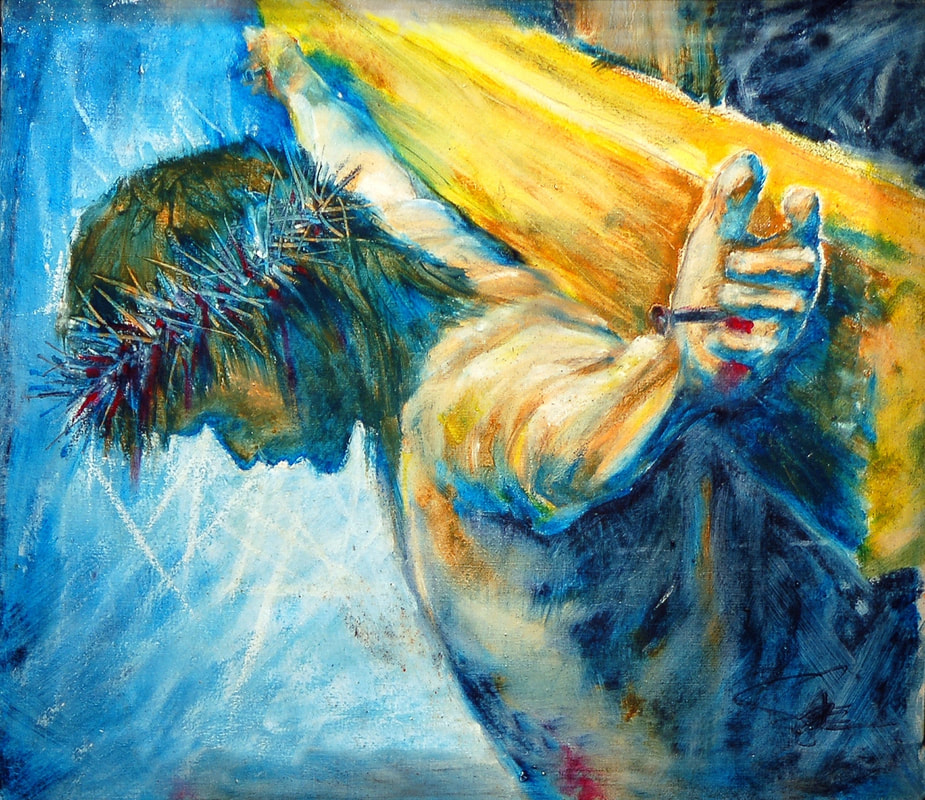|
Throughout the year, the Southern New England Conference of the United Church of Christ reproduces the Daily Lectionary for use by churches. These are the suggested readings for March 4th: Exodus 6:1-13; Psalm 91:1-2, 9-16; and Acts 7:35-42. I would encourage you to read these short selections as part of your Lenten practice.
Today is our first Lenten Friday. In a somber season, Lenten Fridays are even more so. Lenten Fridays draw us in closer to the events of Good Friday and Jesus’ tortured death. The oldest Gospel, the Gospel of Mark, shares with us such a stark account of the cross that the later Gospels feel compelled to soften its message. In Mark, there is not to be found one familiar, sympathetic face as Jesus looks down from the cross. We may remember this differently, but those stories come after Mark. All Mark has to share is that “[t]here were also women looking on from a distance …” (15:40) Jesus found no solace from those who suffered beside Him on their crosses. Again, we may remember this rather differently, but that comes along later. Instead, Mark tells us: “Those who were crucified with [Jesus] also taunted him.” (15:32) And most painfully of all, Jesus could not look up to heaven for that once constant reassuring presence of God. As Jesus’ Passion began in the Garden of Gethsemane, as Jesus retreated from the Twelve, to the three, to Himself alone, Jesus is still able to pray to God by invoking the intimacy of that relationship with the Gospel’s untranslated “‘Abba,’” (14:36) which means Father. However, dying on the cross, again left untranslated to reach back to the authenticity of the historical Jesus, He cries out in desperation to heaven, “‘Eloi, Eloi, lema sabachthani?’” This means, “‘My God, my God, why have you forsaken me?’” Feeling forsaken and alone, Jesus can no longer presume to invoke God with the familiar “Abba.” Now Jesus is left with the formal invocation of “God.” The isolation of Jesus as He faces death is complete. He can not look down, to the side or up to heaven for any reassurance. Jesus dies absolutely alone. And this was so stark that the later Evangelists felt compelled to soften the account. Surprising as it may sound, the unbelievable cruelty of Jesus’ death is the final revelation of God’s unbelievable love for all of us. Jesus on the cross and God in heaven both suffer in their own ways so that in Jesus God knows what unmitigated human mortality feels like. Jesus’ life brings God and us together, and Jesus’ death is an unavoidable part of that life. If Jesus’ death had been anything less than human, if there were angels whispering in His ear, if the Father assured Him it would be over soon, the whole wondrous mystery of the Incarnation, the life and ministry of Jesus, would have been hollowed out. I think that Jesus-died-as-us is the truest meaning of Jesus-died-for-us. The cross is the last and best testimony that God loves us all – even more than God loves Himself. Think back to the Exodus story we read today. God tells Moses, “I have also heard the groaning of the Israelites, whom the Egyptians are holding as slaves.” The enslaved Hebrews were the ones God rescues. God is not drawn to power, riches and pyramids. God is drawn to the slaves who built them. In the reading from Acts, 13 hundred years later as Stephen faces a martyr’s death, he sees Jesus as following in Moses’ tradition, of bringing God to everyone, even to the outcasts. Jesus’ Good Friday death is the culminating revelation of such a God. This is why Lenten Fridays are especially poignant. If you’d like, here is the link to the Southern New England Conference’s daily reading schedule: www.sneucc.org/lectionary.
0 Comments
Leave a Reply. |
NewsFaith, love and chitchat. Categories
All
Archives
June 2024
Follow
|
|
SERVICE TIMES
Sunday 9:30-10:30am Children Sunday School 9:30-10:30am Nursery care available during worship DONATE Make a single or recurring contribution by clicking here |
FOLLOW
|

 RSS Feed
RSS Feed
